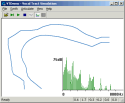ELOBES2019 - Optimising Binaural Hearing for Environment and Listener
Workshop 12 January 2019, Het Pand Congress Centre, Ghent, Belgium
A satellite meeting of the 11th Speech-in-Noise (SPiN) Workshop.
Two ears are better than one when listening to speech in noise. The advantages of listening with two ears is said to come from the "better-ear" effect - that one ear normally has a better signal-to-noise ratio than the other - and from the "binaural advantage" - that knowledge about the form of the target and interfering signals can be gained by correlating them across ears. This workshop will focus on the particular challenges of improving the intelligibility of speech in noise in situations where the listener uses two ears and the sound sources are distributed in space.
The workshop consisted of a series of invited talks and audience discussions about binaural listening to speech in noise.
The final programme was as follows:
| Time | Speaker | Description |
|---|---|---|
| 08:30 | Registration | |
| 09:00 | Mike Brookes (Imperial College London, U.K.) | Introduction |
| 09:15 | Michael Akeroyd (University of Nottingham, U.K.) | KEYNOTE: Spatially hearing the second sound. |
| 09:50 | Alastair Moore (Imperial College London, U.K.) | Personalized HRTFs for hearing aids. Download slides |
| 10.10 | Mark Huckvale & Tim Green (University College London, U.K.) | Predicting spatial release of masking for hearing impaired listeners: a statistical learning approach. Download slides |
| 10:30 | Coffee break | |
| 11:00 | Simon Doclo (University of Oldenburg, Germany) | KEYNOTE: Binaural speech enhancement and cue preservation algorithms. Download slides |
| 11:35 | Homayoun Kamkar-Parsi (Sivantos) | KEYNOTE: Advances and challenges for practical binaural beamforming in hearing aids. |
| 12.10 | Mike Brookes (Imperial College London, U.K.) | Mask-assisted speech enhancement for binaural hearing aids. Download slides |
| 12:30 | Lunch Break | |
| 13:30 | Mathieu Lavandier (Université de Lyon, France) | KEYNOTE: A review of binaural speech intelligibility models: concepts, advantages and limitations. |
| 14:05 | Asger Andersen (Oticon, Denmark) | KEYNOTE: Binaural intelligibility prediction for hearing aid systems. Download slides |
| 14:40 | Gaston Hilkhuysen & Tim Green (University College London, U.K.) | Why do hearing impaired people suffer poor speech perception in noisy environments? An intelligibility metrics approach. Download slides |
| 15:00 | Mark Huckvale (University College London, U.K.) | Farewell |
The workshop was be sponsored by the project: Environment and Listener Optimised Binaural Enhancement of Speech (ELOBES) running at Imperial College London and University College London and funded by the UK Engineering and Physical Sciences Research Council.
Enquiries about this workshop should be directed to m.huckvale@ucl.ac.uk.


